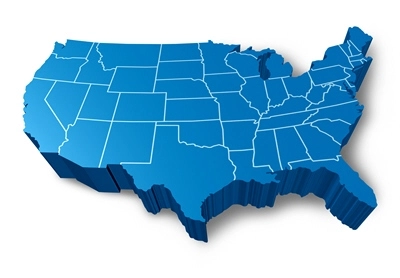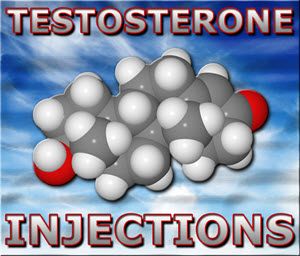Introduction
Testosterone undecanoate, a long-acting injectable form of testosterone, has been increasingly utilized in the management of hypogonadism and other testosterone deficiency syndromes among American males. While its effects on muscle mass, libido, and overall well-being are well-documented, the impact of testosterone undecanoate on hair growth remains a topic of significant interest and concern. This article delves into the relationship between testosterone undecanoate and hair growth, providing insights that are particularly relevant to American men.
Understanding Testosterone Undecanoate
Testosterone undecanoate is a synthetic version of the primary male sex hormone, testosterone. Administered via intramuscular injection, it offers a sustained release, typically requiring administration every 10 to 14 weeks. This formulation is favored for its convenience and effectiveness in maintaining stable testosterone levels, which is crucial for various physiological functions, including hair growth.
The Role of Testosterone in Hair Growth
Testosterone plays a pivotal role in the regulation of hair growth. It is converted to dihydrotestosterone (DHT) by the enzyme 5-alpha-reductase. DHT is a more potent androgen that binds to receptors in the hair follicles, influencing the hair growth cycle. While DHT is essential for the development of male secondary sexual characteristics, including facial and body hair, it can also contribute to hair loss on the scalp, particularly in individuals genetically predisposed to androgenetic alopecia, commonly known as male pattern baldness.
Effects of Testosterone Undecanoate on Hair Growth
The administration of testosterone undecanoate can lead to increased levels of both testosterone and DHT. For American males, this can have dual effects on hair growth. On one hand, it may promote the growth of facial and body hair, enhancing masculine features. On the other hand, elevated DHT levels can accelerate hair loss on the scalp in susceptible individuals. Studies have shown that men with a genetic predisposition to male pattern baldness are more likely to experience hair thinning or loss when using testosterone undecanoate.
Managing Hair Loss Associated with Testosterone Undecanoate
For American males concerned about hair loss while using testosterone undecanoate, several management strategies can be considered. Firstly, consulting with a healthcare provider to discuss the potential risks and benefits of testosterone therapy is essential. Secondly, medications such as finasteride, which inhibits the conversion of testosterone to DHT, can be prescribed to mitigate hair loss. Additionally, topical treatments like minoxidil may be used to promote hair regrowth. It is also important for patients to monitor their hair health and report any significant changes to their healthcare provider.
Cultural and Psychological Considerations
In American culture, hair is often associated with youth, vitality, and attractiveness. Therefore, the potential for hair loss can have significant psychological impacts on men undergoing testosterone undecanoate therapy. Addressing these concerns through open communication with healthcare providers and, if necessary, psychological support, can help mitigate the emotional toll of hair loss.
Conclusion
Testosterone undecanoate is a valuable therapeutic option for American males with testosterone deficiency, offering numerous health benefits. However, its impact on hair growth, particularly the potential for scalp hair loss, necessitates careful consideration and management. By understanding the mechanisms behind testosterone's effects on hair and employing appropriate interventions, men can better navigate the challenges associated with testosterone therapy while maximizing its benefits. As research continues to evolve, it is hoped that more tailored approaches to managing hair growth in the context of testosterone undecanoate therapy will become available, enhancing the quality of life for American males.
Contact Us Today For A Free Consultation

- Testosterone Undecanoate: Enhancing Athletic Performance in American Males - Benefits and Risks [Last Updated On: March 5th, 2025] [Originally Added On: March 5th, 2025]
- Testosterone Undecanoate: Long-Acting Treatment for Hypogonadism in American Men [Last Updated On: March 16th, 2025] [Originally Added On: March 16th, 2025]
- Maximizing Testosterone Undecanoate Benefits: Diet, Exercise, and Lifestyle for American Men [Last Updated On: March 17th, 2025] [Originally Added On: March 17th, 2025]
- Testosterone Undecanoate: A Long-Acting TRT Option for American Males with Hypogonadism [Last Updated On: March 17th, 2025] [Originally Added On: March 17th, 2025]
- Testosterone Undecanoate: Enhancing Life Quality for American Males with Low Testosterone [Last Updated On: March 18th, 2025] [Originally Added On: March 18th, 2025]
- Testosterone Undecanoate: A Breakthrough in Treating Andropause for American Men [Last Updated On: March 19th, 2025] [Originally Added On: March 19th, 2025]
- Testosterone Undecanoate Therapy: Importance of Regular Monitoring for American Men [Last Updated On: March 20th, 2025] [Originally Added On: March 20th, 2025]
- Safety Profile of Testosterone Undecanoate in American Males: Monitoring and Management [Last Updated On: March 21st, 2025] [Originally Added On: March 21st, 2025]
- Testosterone Undecanoate: Managing Deficiency in Diverse American Male Demographics [Last Updated On: March 21st, 2025] [Originally Added On: March 21st, 2025]
- Testosterone Undecanoate Therapy Enhances Sleep Quality in American Men with Hypogonadism [Last Updated On: March 21st, 2025] [Originally Added On: March 21st, 2025]
- Testosterone Undecanoate: A Solution for Muscle Loss in Aging American Males [Last Updated On: March 22nd, 2025] [Originally Added On: March 22nd, 2025]
- Exploring Testosterone Undecanoate's Role in Managing Chronic Fatigue in Men [Last Updated On: March 22nd, 2025] [Originally Added On: March 22nd, 2025]
- Testosterone Undecanoate: Enhancing Fertility in American Men [Last Updated On: March 22nd, 2025] [Originally Added On: March 22nd, 2025]
- Testosterone Undecanoate: Cultural Perceptions and Healthcare Navigation in American Men [Last Updated On: March 22nd, 2025] [Originally Added On: March 22nd, 2025]
- Testosterone Undecanoate's Impact on Cognitive Function in American Men: A Review [Last Updated On: March 22nd, 2025] [Originally Added On: March 22nd, 2025]
- Testosterone Undecanoate: A Promising Solution for Weight Management in American Men [Last Updated On: March 23rd, 2025] [Originally Added On: March 23rd, 2025]
- Testosterone Undecanoate: Enhancing Emotional Well-being in American Males [Last Updated On: March 23rd, 2025] [Originally Added On: March 23rd, 2025]
- Testosterone Undecanoate: A Promising Therapy for Hypogonadism in American Male Cancer Survivors [Last Updated On: March 23rd, 2025] [Originally Added On: March 23rd, 2025]
- Testosterone Undecanoate: Enhancing Injury Recovery in American Males [Last Updated On: March 23rd, 2025] [Originally Added On: March 23rd, 2025]
- Testosterone Undecanoate: Enhancing Metabolic Health in American Men [Last Updated On: March 23rd, 2025] [Originally Added On: March 23rd, 2025]
- Testosterone Undecanoate: Effects on Blood Pressure in American Men with Hypogonadism [Last Updated On: March 23rd, 2025] [Originally Added On: March 23rd, 2025]
- Testosterone Undecanoate: A Vital Therapy for American Male Veterans' Health [Last Updated On: March 24th, 2025] [Originally Added On: March 24th, 2025]
- Testosterone Undecanoate: Efficacy and Safety in American Men - A Clinical Overview [Last Updated On: March 24th, 2025] [Originally Added On: March 24th, 2025]
- Testosterone Undecanoate: Managing Side Effects for American Men's Health [Last Updated On: March 24th, 2025] [Originally Added On: March 24th, 2025]
- Testosterone Undecanoate's Impact on Eye Health in American Men: Benefits and Risks [Last Updated On: March 24th, 2025] [Originally Added On: March 24th, 2025]
- Testosterone Undecanoate: A Promising Treatment for Sexual Dysfunction in American Men [Last Updated On: March 24th, 2025] [Originally Added On: March 24th, 2025]
- Testosterone Undecanoate's Impact on Immune Function in American Males: Benefits and Risks [Last Updated On: March 24th, 2025] [Originally Added On: March 24th, 2025]
- Testosterone Undecanoate: A Promising Treatment for Osteoporosis in American Men [Last Updated On: March 24th, 2025] [Originally Added On: March 24th, 2025]
- Testosterone Undecanoate's Impact on Respiratory Health in American Men: Benefits and Risks [Last Updated On: March 24th, 2025] [Originally Added On: March 24th, 2025]
- Testosterone Undecanoate: Enhancing Endurance in American Men [Last Updated On: March 24th, 2025] [Originally Added On: March 24th, 2025]
- Testosterone Undecanoate: Enhancing Skin Health in American Men [Last Updated On: March 25th, 2025] [Originally Added On: March 25th, 2025]
- Testosterone Undecanoate: Impacts on American Male Longevity and Health [Last Updated On: March 25th, 2025] [Originally Added On: March 25th, 2025]
- Testosterone Undecanoate's Impact on Dental Health in American Males: A Comprehensive Review [Last Updated On: March 25th, 2025] [Originally Added On: March 25th, 2025]
- Testosterone Undecanoate: Dispelling Myths and Understanding Benefits for Hypogonadism Treatment [Last Updated On: March 26th, 2025] [Originally Added On: March 26th, 2025]
- Testosterone Undecanoate's Impact on Digestive Health in American Males: Benefits and Risks [Last Updated On: March 26th, 2025] [Originally Added On: March 26th, 2025]
- Testosterone Undecanoate: Economic Impact and Healthcare Benefits for American Men [Last Updated On: March 26th, 2025] [Originally Added On: March 26th, 2025]
- Testosterone Undecanoate: A Promising Stress Management Tool for American Males [Last Updated On: March 26th, 2025] [Originally Added On: March 26th, 2025]
- Testosterone Undecanoate's Impact on Joint Health in American Males: Benefits and Risks [Last Updated On: March 26th, 2025] [Originally Added On: March 26th, 2025]
- Testosterone Undecanoate's Impact on Kidney Function in American Men: A Comprehensive Review [Last Updated On: March 26th, 2025] [Originally Added On: March 26th, 2025]
- Testosterone Undecanoate Enhances Skin Elasticity in American Men with Hypogonadism [Last Updated On: March 26th, 2025] [Originally Added On: March 26th, 2025]
- Testosterone Undecanoate's Impact on Liver Health in American Men: A Comprehensive Review [Last Updated On: March 27th, 2025] [Originally Added On: March 27th, 2025]
- Testosterone Undecanoate: Dosage Adjustments and Monitoring for American Men [Last Updated On: March 27th, 2025] [Originally Added On: March 27th, 2025]
- Testosterone Undecanoate: Enhancing Diabetes Management in American Males [Last Updated On: March 27th, 2025] [Originally Added On: March 27th, 2025]
- Testosterone Undecanoate: Optimizing Hypogonadism Treatment for American Men [Last Updated On: March 27th, 2025] [Originally Added On: March 27th, 2025]
- Testosterone Undecanoate's Impact on Cholesterol Levels in American Men: A Comprehensive Review [Last Updated On: March 27th, 2025] [Originally Added On: March 27th, 2025]
- Testosterone Undecanoate: Enhancing Cognitive Function in American Men [Last Updated On: March 28th, 2025] [Originally Added On: March 28th, 2025]
- Testosterone Undecanoate's Impact on Nail Health in American Males: Benefits and Risks [Last Updated On: March 28th, 2025] [Originally Added On: March 28th, 2025]
- Testosterone Undecanoate: A Novel Approach to Managing Allergies in American Males [Last Updated On: March 29th, 2025] [Originally Added On: March 29th, 2025]
- Testosterone Undecanoate: A Promising Therapy for Chronic Pain in American Males [Last Updated On: March 30th, 2025] [Originally Added On: March 30th, 2025]
- Testosterone Undecanoate's Impact on Hearing in American Males: A Comprehensive Review [Last Updated On: March 30th, 2025] [Originally Added On: March 30th, 2025]
- Testosterone Undecanoate: Benefits and Considerations for American Men's Reproductive Health [Last Updated On: April 1st, 2025] [Originally Added On: April 1st, 2025]
- Testosterone Undecanoate: Enhancing Muscle, Reducing Fat in American Males [Last Updated On: April 1st, 2025] [Originally Added On: April 1st, 2025]
- Testosterone Undecanoate and Hair Loss: Insights for American Men on TRT [Last Updated On: April 2nd, 2025] [Originally Added On: April 2nd, 2025]
- Testosterone Undecanoate: Enhancing Immune Response in American Men [Last Updated On: April 4th, 2025] [Originally Added On: April 4th, 2025]
- Monitoring Testosterone Undecanoate Treatment: Key Parameters and Guidelines for American Men [Last Updated On: April 4th, 2025] [Originally Added On: April 4th, 2025]
- Testosterone Undecanoate's Impact on Blood Clotting in American Males: Risks and Management [Last Updated On: April 5th, 2025] [Originally Added On: April 5th, 2025]
- Testosterone Undecanoate: A Promising Treatment for Anxiety in American Males [Last Updated On: April 6th, 2025] [Originally Added On: April 6th, 2025]
- Testosterone Undecanoate: Enhancing Muscle Recovery and Performance in American Men [Last Updated On: April 7th, 2025] [Originally Added On: April 7th, 2025]
- Testosterone Undecanoate's Impact on Heart Rate in American Men: Safety and Efficacy [Last Updated On: April 8th, 2025] [Originally Added On: April 8th, 2025]
- Testosterone Undecanoate's Impact on Blood Sugar in American Males: Benefits and Risks [Last Updated On: April 9th, 2025] [Originally Added On: April 9th, 2025]
- Testosterone Undecanoate: A Promising Treatment for Depression in American Males [Last Updated On: April 9th, 2025] [Originally Added On: April 9th, 2025]
- Testosterone Undecanoate's Impact on Skin Pigmentation in American Males: Mechanisms and Clinical Insights [Last Updated On: April 9th, 2025] [Originally Added On: April 9th, 2025]
- Managing Side Effects of Testosterone Undecanoate Therapy in American Men [Last Updated On: April 10th, 2025] [Originally Added On: April 10th, 2025]
- Testosterone Undecanoate: Enhancing Muscle Strength in American Men [Last Updated On: April 10th, 2025] [Originally Added On: April 10th, 2025]
- Testosterone Undecanoate: Enhancing Male Sexual Health in American Men [Last Updated On: April 11th, 2025] [Originally Added On: April 11th, 2025]
- Testosterone Undecanoate: Enhancing Bone Healing in American Men [Last Updated On: April 13th, 2025] [Originally Added On: April 13th, 2025]
- Testosterone Undecanoate's Impact on Thermoregulation in American Males: Benefits and Research Needs [Last Updated On: April 15th, 2025] [Originally Added On: April 15th, 2025]
Word Count: 557





















